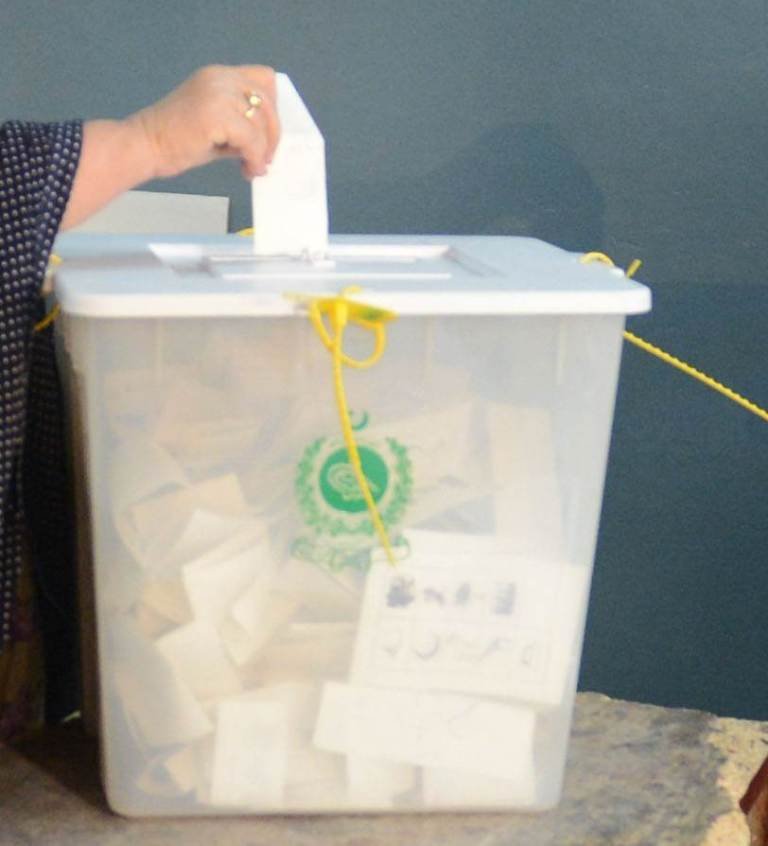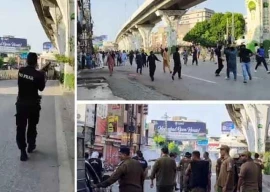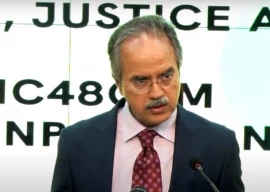
A three-judge bench of the apex court, headed by Chief Justice Tassaduq Hussain Jillani, also issued notice to Attorney General for Pakistan, asking him to assist in the matter related to the implementation of its June 8, 2012 judgment on the Workers Party case.
The above judgment said: “To ensure fair and transparent election, if need be, instead of involving the employees of the provincial governments, the employees of federal government/autonomous organisations/agencies, including the armed and para-armed forces may be instructed to carry out stipulated functions at the polling stations.”
The bench was hearing an application, filed by Pakistan Tehreek-e-Insaf’s (PTI) Additional Secretary Saifullah Nayazee regarding the verification of thumb impressions in four constituencies.
During the hearing, the applicant’s counsel Hamid Khan referred to the paras 80 and 81 of Worker Party case and contended that the SC’s clear directive to the ECP to enforce the Representation of the Peoples Act 1976 had not been complied with.
Referring to the ECP’s report, the counsel said the commission had not implemented the SC’s direction about the deployment of federal government’s employees at polling stations without reasons.
Appearing before the bench, ECP Secretary Ishtiaq Ahmad Khan said the poll supervisory body made efforts to deploy federal government officials at the general elections. But federal government employees were not available in some constituencies’ and, therefore, some imbalance did occur.
“The ECP had provided a list of available staff to every returning officer and it was his discretion to select (staff) from amongst them for deployment at polling stations,” he said.
He requested the bench to give some time for filing comments about the functioning of the ECP regarding the compliance of chapter 3 of Representation of the People Act 1976 as well as SC's judgment.
Earlier, when Hamid Khan resumed his arguments, the CJ informed him regarding the Election Tribunal Multan’s reply about the PTI’s complaint regarding alleged rigging.
According to the tribunal’s report, the PTI candidate wanted to conduct the proceedings according to his desire, while his behaviour was non cooperative. It said that instead of giving evidences of rigging, the applicant was insisting on the verification of thumb impressions.
Upon this, PTI’s counsel alleged that the election rribunals were delaying their cases and they had approached the Supreme Court to show the bigger picture of rigging. “The commission has already admitted that in some constituencies, federal government employees were not deputed,” he added.
The bench also asked the ECP secretary as to whether any correspondence had taken place between federal government and the commission regarding the deployment of federation’s employees at polling stations. Ishtiaq Ahmad Khan replied that they had requested the federal government in this regard; that correspondence was available in this regard and they would soon furnish details in this regard.
The hearing of the case is adjourned for 15 days.
Imran Khan’s comment
PTI chief Imran Khan was also present in the courtroom during the proceedings. After the court’s hearing, he talked to the media and alleged that the main accused of alleged rigging in 35 constituencies of Punjab had been rewarded by being appointed as Pakistan Cricket Board’s (PCB) chairman.

















COMMENTS
Comments are moderated and generally will be posted if they are on-topic and not abusive.
For more information, please see our Comments FAQ